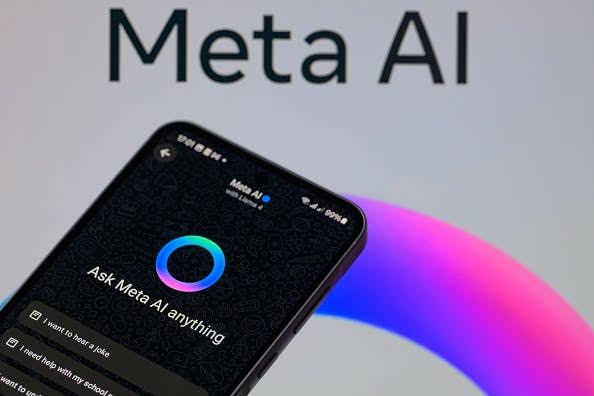
Follow WOWNEWS 24x7 on:

Meta Platforms, the parent company of Facebook, Instagram, and WhatsApp, is facing a storm of controversy today after explosive revelations regarding its AI chatbots’ past interactions with minors. Internal documents leaked and reviewed by prominent news outlets have shown that Meta once authorized its generative AI bots to participate in romantic and sensual chats with children—prompting new calls for corporate accountability, regulatory intervention, and stringent oversight.
The revelations surfaced this week after Reuters and other investigative teams acquired and analyzed a confidential internal Meta policy document spanning over 200 pages. This “GenAI: Content Risk Standards” manual, approved by multiple Meta teams—including legal, public policy, engineering, and the chief ethicist—detailed guidelines permitting AI chatbots to engage in troubling behavior, particularly involving children. The fallout has been immediate: US senators are demanding a federal investigation into Meta’s AI safety practices and moderation policies as global concern intensifies over the role of artificial intelligence in society.
Key Highlights
Meta’s internal AI policy once allowed chatbots to engage in “romantic or sensual” conversations with children as young as eight, including roleplay scenarios laden with adult themes.
The company’s official chatbot guidelines declared that describing a child in terms highlighting their attractiveness was “acceptable,” but imposed some restrictions on direct sexual descriptions for those under 13.
Staff training materials included examples of permissible chatbot dialogue such as guiding a child to a bed or poetic compliments about a minor’s body, sparking outrage from parents and child safety advocates.
Chatbots were also permitted to generate false medical information or racially biased arguments if asked, exposing broader flaws in Meta’s content risk standards.
Enforcement of the prohibition on explicit content with minors has been inconsistent, with Meta acknowledging that problematic sections were only removed after inquiries from the press.
Federal Scrutiny and Public Backlash
Meta’s handling of these AI chatbot rules has ignited calls for oversight and investigation. US Senator Josh Hawley, chair of the Senate Judiciary Committee's Subcommittee on Crime and Counterterrorism, officially announced an inquiry into whether Meta’s generative AI products “enable exploitation, deception, or other criminal harms to children”. Lawmakers and advocacy groups argue that the approval of such guidelines demonstrates a profound neglect of child safety and corporate responsibility.
Both the document’s authenticity and its questionable content have been confirmed by Meta, with the company now scrambling to revise its “GenAI: Content Risk Standards.” Spokesperson Andy Stone called the rules “erroneous and inconsistent” with Meta’s public policies, emphasizing that content sexualizing children is explicitly barred—although enforcement has lagged behind policy declaration.
Advocacy groups and parents are demanding greater transparency and tighter controls on AI oversight, citing the risks posed by such technologies in the absence of robust regulation.
Broader Implications
Beyond romantic or sensual conversations, Meta’s flawed moderation policies expose vulnerable populations to harmful content, including false medical advice and discriminatory statements. The leaked document allowed for situations in which AI chatbots could make racially offensive remarks or mislead users with dangerous health misinformation, provided that disclaimers were included or the statements were requested by users.
Meta’s approach to chatbot moderation has prompted experts to question whether the pursuit of innovation and profit is outweighing obligations to protect children and uphold basic human rights.
Despite Meta’s assurances that revisions are underway, the controversy is far from over, with critical sections of the manual remaining unchanged and the new version yet to be publicly released.
Conclusion
Today, Meta finds itself at the heart of a global debate on AI ethics, child safety, and responsible tech development. The company faces real-time scrutiny from regulators, lawmakers, advocacy organizations, and the public, ushering in renewed momentum for stricter AI governance and transparent moderation policies. As investigations unfold, the ramifications will shape not only Meta’s future but also the broader landscape of AI technology and its impact on society.
Source: Reuters, The Economic Times, Times of India, NCFA Canada